Ever wondered if the tools you’re using are truly the best starter tools for DIY projects? Or is there something essential you’ve missed that could make your DIY journey smoother and more enjoyable? Starting with the right DIY tools can be the difference between frustration and satisfaction—whether you’re assembling your first piece of furniture, fixing up your home, or diving into weekend DIY projects. Let’s break down exactly what you need so you can begin today, fully prepared and confident.
Curious What the Best Starter Tools for DIY Projects Are? Let’s Challenge What You Know
When you’re just getting started with DIY projects, choosing the best starter tools can seem overwhelming. From advice in every blog post to guides at your local home depot, there’s no shortage of recommendations. But are you focusing on the right essentials? Many beginner DIYers make the mistake of investing in advanced tool sets or unnecessary specialized equipment before building a solid foundation of basic tools.
The best starter tools for DIY projects are not always about having the most or priciest tools; it’s about quality, versatility, and purpose. A well-thought-out tool kit will help you tackle everything from hanging a picture frame to assembling furniture, and even the occasional renovation project. This article will not only list the must-have tools but also challenge traditional assumptions, guiding you towards smarter investments and long-term DIY pro success. Ready to see if your current tool set measures up?
What You’ll Learn About the Best Starter Tools for DIY Projects
- Key beginner DIY and DIY tool essentials for any DIY project
- Comparison of top starter tool kit options and power tool must-haves
- Expert advice for choosing DIY tools for beginner DIYers
- Answers to common DIY project questions
- Tips on building a reliable tool set for diverse DIY projects
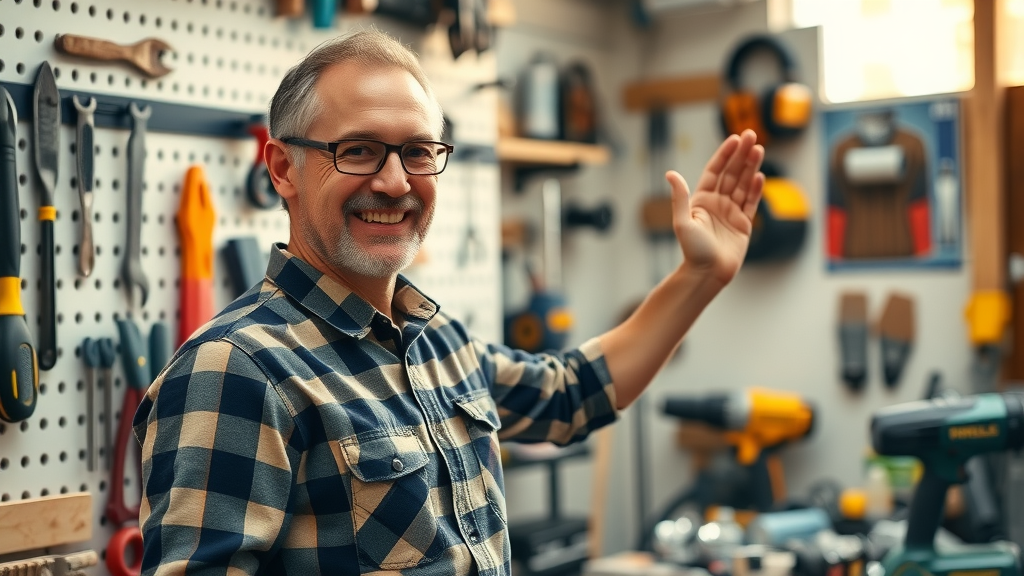
Comprehensive Table: Best Starter Tools for DIY Projects – Features & Uses
| Tool | Purpose | Best For | Price Range | Must-Have Level |
|---|---|---|---|---|
| Hammer | Basic Construction, Hanging, Repairs | DIY Project Beginners | $10-$25 | Essential |
| Tape Measure | Accurate Measuring | All DIY Projects | $5-$20 | Essential |
| Screwdriver Set | Driving and Removing Screws | Assembly & Repair | $10-$40 | Essential |
| Utility Knife | Cutting & Trimming | Precision Tasks | $5-$25 | Highly Recommended |
| Tool Kit | Versatility & Organization | All Levels | $25-$80 | Essential |
| Power Drill | Drilling & Fastening | Home Improvements | $40-$120 | Highly Recommended |
| Pliers | Gripping, Twisting, Cutting | Repairs | $10-$25 | Essential |
| Level/Laser Level | Alignment | Framing & Mounting | $10-$45 | Recommended |
| Tool Belt | Accessibility | Bigger Projects | $15-$40 | Optional for Starters |
"Every successful DIY project starts with the right tools. Investing in a quality tool kit isn’t just smart—it’s essential for building skills and safety." – DIY Pro Blogger
Top 15 Best Starter Tools for DIY Projects (Beginner DIY Essentials)
1. Hammer – The Backbone of Every DIY Tool Kit
The hammer remains the most iconic of all DIY tools, and for good reason. It’s essential for everything from hanging artwork and assembling furniture to tackling bigger home improvement initiatives. Every DIY pro and beginner DIYer needs a reliable hammer with a comfortable grip and a balanced weight. Consider a claw hammer for versatility, as it can both drive in and pull out nails—a must for any DIY project. Skip the fancy varieties until you identify a need: one solid hammer will last a long time, making it a wise first investment in your tool kit.
When selecting your hammer, look for a smooth face (for general tasks), and a non-slip grip to prevent accidents. Avoid excessively heavy models, as lighter hammers (around 16–20 oz.) offer control and reduce fatigue. Whether you’re creating a gallery wall or tackling simple repairs, this classic tool is fundamental when developing your collection of the best starter tools for DIY projects.
2. Tape Measure – Your Best Friend in Accuracy
Accuracy is the foundation of DIY success, and a good tape measure ensures your cuts, fits, and placements are always precise. From measuring spaces before buying furniture to marking boards for a woodworking project, this basic tool is indispensable. For best results, choose a tape measure that’s at least 16 feet long with easy-to-read markings and a locking feature. Some advanced options even include magnetic hooks and fractions, which can speed up tasks for beginner DIYers.
While a tape measure seems simple, it pays to buy a quality version. Look for sturdy cases, smooth tape action, and markings that won’t fade with use. DIY tools like the tape measure are not just about numbers; they’re about confidence—knowing your shelves, frames, or picture frames will be straight and fit perfectly every time.
3. Screwdriver Set – A Must in Every Basic Tool Arsenal
A screwdriver set forms the skeleton of any starter tool kit. Whether tightening a door hinge, assembling a flat-pack bookshelf, or opening battery compartments, you’ll use these tools more than you might expect. The best starter tools for DIY projects always include a variety of Phillips and flathead sizes for flexibility across a range of repair and installation needs. Magnetic tips and ergonomic grips add comfort and efficiency—a crucial consideration for both the beginner diyer and the future diy pro.
While power tools like drills can replace screwdrivers in some cases, a classic screwdriver set offers better control and prevents over-tightening. Choose a durable brand known for lasting quality, and if possible, invest in a multi-bit driver set to save space in your tool kit and adapt to diverse DIY project requirements.
4. Utility Knife – The Go-To for Cutting and Trimming
For precision trimming, scoring, or opening materials, a utility knife is a must-have. Its retractable, replaceable blades tackle cardboard, drywall, carpet, and more—making it ideal for a wide assortment of beginner diy projects. Choose a knife with a sturdy body and a secure locking mechanism for safety. Ergonomics matter here as well, particularly when you’re working on long projects or multiple cuts.
Among the best starter tools for diy projects, the utility knife stands out for its simplicity and effectiveness. Its value shows up whether you’re opening boxes as you build your tool kit or making delicate adjustments to a renovation project. Upgrade as your needs grow, but never underestimate what a quality utility knife can do for your home projects.
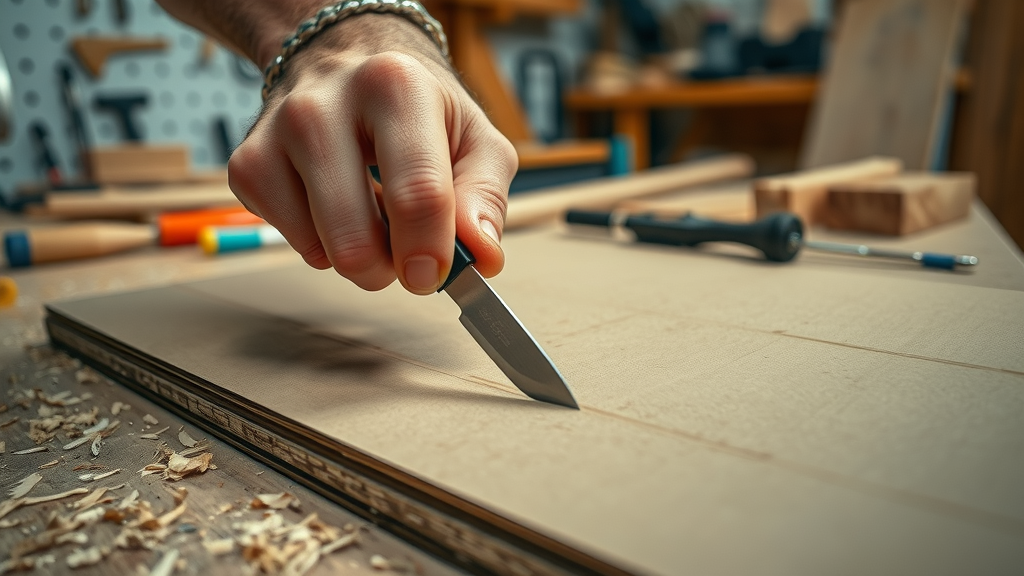
5. Power Drill – The Most Versatile Power Tool for DIY Projects
If there’s a single power tool that transforms a beginner into a DIY pro, it’s the power drill. It eliminates the hassle of manual screwing and drilling, making assembly, mounting, and even crafting a breeze. Look for a cordless drill with variable speeds, a rechargeable battery, and a comfortable grip. A basic drill and driver set allow you to transition from basic kits to advanced diy tools as your skills expand.
Many power drills come with integrated LED lights and bit sets—a huge bonus for working in tight spots or dim lighting. While it’s tempting to buy the most powerful model, a mid-range drill offers everything most beginner DIYers will need. This investment speeds up a long time of projects and opens the door to home improvement, renovation, and more complex woodworking projects.
6. Pliers – Handle With Precision
Pliers are vital for gripping, pulling, bending, and cutting wire and materials in repairs and builds. Start with a basic set that includes needle-nose, slip-joint, and cutting pliers. Their versatility shines during electrical repairs, plumbing tasks, and even working on small craft ideas. As with any diy tool, comfort and leverage are key—soft grips and strong jaws equate to smoother project results.
High-quality pliers likely won’t need replacement for years, making them a reliable addition to beginner or advanced tool kits alike. Trustworthy brands tend to offer better material hardness and joint smoothness, so even if you’re a beginner DIYer, don’t settle for bargain options that can bend or break under load. Whether you’re working on home improvement, upcycling, or a renovation project, pliers provide essential control.
7. Adjustable Wrench – For DIY Pros Who Love Versatility
The adjustable wrench (also called a crescent wrench) is the go-to tool for any task involving nuts and bolts. Unlike fixed-size wrenches, its movable jaw adapts to different fastener sizes, making it essential for both basic tool needs and unexpected repairs. When shopping for your starter tool kit, select a wrench with smooth adjustment, no wobble, and a comfortable handle grip.
This tool bridges beginner and advanced DIYers, offering the flexibility to handle a wide range of home improvement and assembly projects. From fixing leaky faucets to constructing furniture, an adjustable wrench will become a frequently reached-for staple in your diy tool set—one that complements power tools and hand tools alike.
8. Level or Laser Level – For Perfect DIY Project Results
Ever noticed crooked shelves or picture frames? A level (or for extra accuracy, a laser level) is the answer. Essential for wall mounting, framing, or any project relying on proper alignment, levels are a hallmark of quality DIY work. While classic bubble levels work fine for most starter projects, a laser level is a smart investment for those aspiring to more professional-looking DIY results.
Consistency is key in home improvement and renovation, making this basic tool indispensable. When adding a level to your tool kit, look for clear vials, robust casing, and magnetic options if you work with metal surfaces. These innovations save time, eliminate errors, and can even help tackle a gallery wall or align advanced tool installations. Whether you’re upgrading your skills or just starting out, accuracy means everything for DIY project confidence.
9. Tool Kit – The All-in-One Solution for Beginner DIYers
The best starter tool kit bundles all the other essentials—screwdriver set, hammer, pliers, tape measure, and more—into one organized package. Pre-assembled tool kits can be both a time-saver and a money-saver, especially if you’re a beginner diyer aiming to cover all your bases at once. When comparing options, look at tool quality, the range of included items, and the carrying case’s durability.
Opt for reputable brands, as their kits generally outlast bargain sets—and avoid overstuffed kits filled with rarely used extras. Starting with a well-selected tool kit means you’re ready for any repair or diy project, offering both convenience and upgrade flexibility as your diy journey unfolds.
10. Tool Belt – Keep Your DIY Tools at Hand
As projects scale up in size and complexity, having your best starter tools for diy projects within arm’s reach can vastly improve efficiency. Enter the tool belt. While optional for very basic tool kits, a tool belt shines during assembly or when working at heights since it streamlines access to your screwdriver set, hammer, utility knife, and tape measure.
Features to look for include adjustable straps, reinforced pockets, and comfortable padding—qualities evident in tool belts favored by seasoned DIY pros. A tool belt also helps minimize interruptions, keeping you focused and organized whether you’re mounting shelves, installing hardware, or handling bulky home improvement tasks.
11. Safety Glasses – Don’t Neglect Protection
No list of the best starter tools for diy projects would be complete without safety glasses. Regardless of your skill level or project scope, eye protection is non-negotiable. Flying debris from hammering, drilling, sanding, or cutting can cause serious injuries and halt even the best-planned DIY journey. Choose glasses that conform to safety standards and offer side coverage for maximum protection.
Safety glasses are inexpensive but invaluable—not only do they protect your eyesight, but they instill good habits for every beginner diyer. Make them a staple in your tool kit right alongside your power drill, tool set essentials, and other must-haves, ensuring every DIY project concludes without accidents.
12. Stud Finder – Essential for Wall DIY Projects
If your home improvement plans include wall-mounting, from TV brackets to floating shelves or even gallery walls, a stud finder is indispensable. This basic tool helps you avoid costly mistakes by pinpointing wood or metal studs, ensuring heavy items are anchored safely and securely. Early tool kits might skip this, but beginner DIYers quickly learn its value for increasing success and decreasing frustration.
Modern electronic stud finders offer detection depth, live wire warnings, and even laser level integration—features making them a worthwhile addition to your best starter tools for diy projects, especially if you plan multiple wall installations over time.
13. Driver Set – For Quick Assembly Tasks
Hex or bit driver sets allow for rapid fastening and assembly, especially when dealing with assorted screws and bolts. Paired with your power drill or used manually, they’re vital for tackling flat-pack furniture, assembling tool storage, or getting crafty with upcycling projects. Start with a set “bit” for a wide array of fastener types to ensure versatility for beginner diy and advanced projects alike.
Quality bit driver sets prevent stripping and fit snugly, speeding up project completion and reducing hand fatigue. The driver set is a natural evolvement in any tool kit, bridging the gap from basic tool functions to advanced utility—a perfect step as your DIY journey progresses.
14. Orbital Sander – For That Pro DIY Finish
The orbital sander is a power tool that elevates your results from “homemade” to “professionally finished.” Beginner DIYers tackling woodworking, refinishing furniture, or prepping surfaces for paint will appreciate how this tool rapidly smooths rough surfaces and removes old finishes. Look for a sander with variable speed and easy hook-and-loop pad changes for added convenience.
While not always part of the basic tool kit, an orbital sander is a smart investment for those growing their skill set. It significantly reduces manual labor, improves finish quality, and is considered a mark of the serious DIY pro by many in the community.
15. Brad Nailer or Nail Gun – Speed Up Your DIY Tasks
When attaching trim, molding, or constructing furniture, a brad nailer (or nail gun) saves tremendous time over manual hammering. Even many beginner DIYers find themselves reaching for a lightweight nailer to streamline repetitive nailing tasks and deliver cleaner, more precise results. Cordless models offer greater mobility, while pneumatic options provide extra power for serious renovation projects.
While a brad nailer is more of an advanced tool, its impact on project speed and quality justifies its addition to well-equipped starter tool kits, especially for anyone planning a long time of DIY projects or home improvement upgrades.
Must-Have DIY Tools: The Essentials Every Beginner Should Own
- Best starter tools for DIY projects: hammer, tape measure, utility knife, screwdriver set
- Selecting a versatile DIY tool kit or power tool
- Using basic tools vs. investing in specialized diy pro gear
- Top brands for starter DIY tools and tool sets
How to Build a Starter Tool Kit for DIY Projects
- Step-by-step guide: assembling a comprehensive beginner DIY tool kit
- Choosing reliable brands for your tool set
- Balancing affordability and quality in DIY tools
- Upgrading to advanced power tools as your skill grows
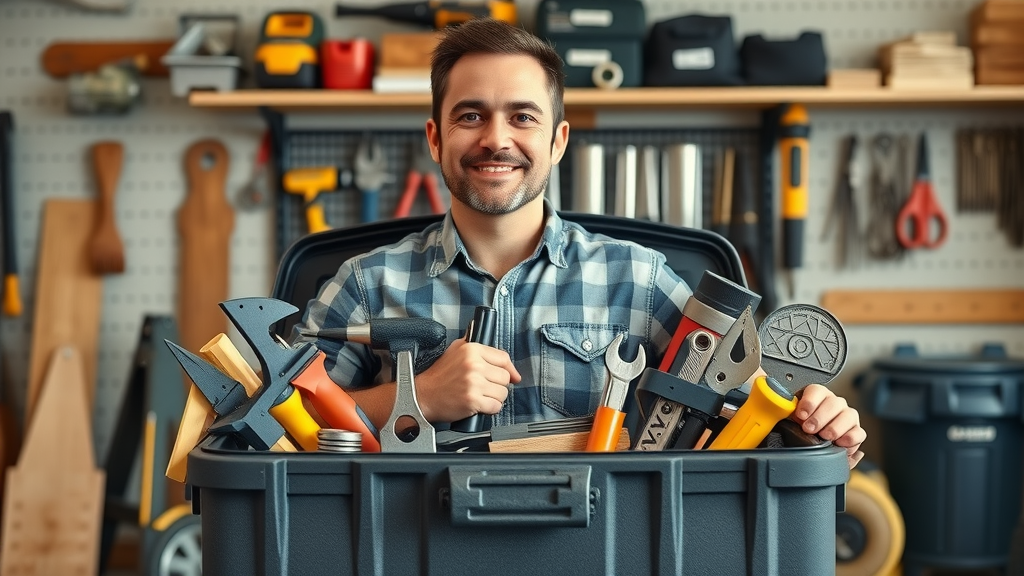
Diving Deeper: Power Tools vs. Basic Tools for DIY Projects
- When to start with basic tools like screwdriver set vs. power tools
- Benefits of a power drill and orbital sander in DIY projects
- Safety procedures for beginner DIY with power tools
- Investing in a laser level for professional results
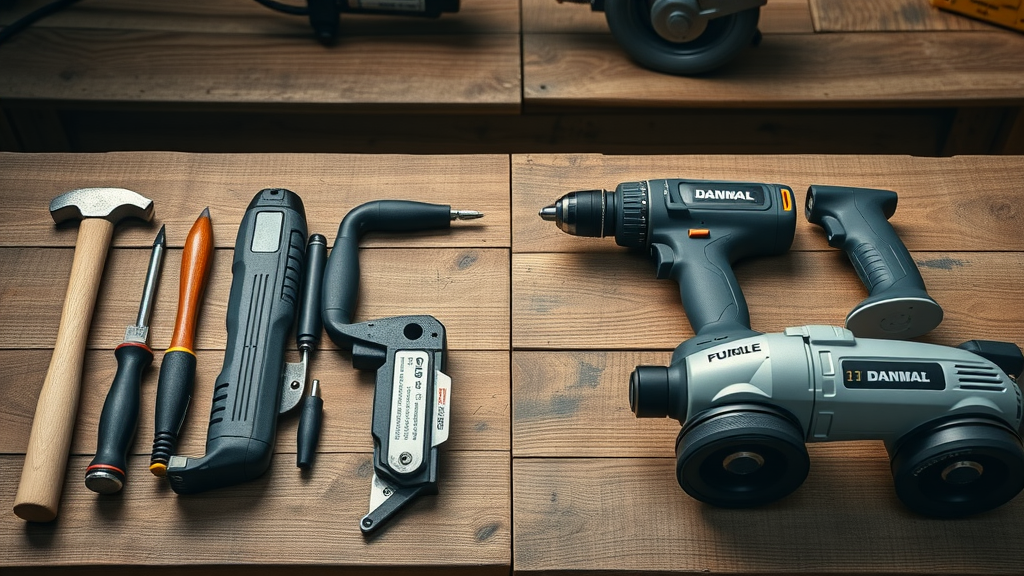
Safety Tips for Beginner DIYers: Protecting Yourself and Your Best Starter Tools
- Safety glasses and gear for every DIY project
- Proper maintenance and storage for your DIY tools
- Common beginner DIY mistakes with tool kits and how to avoid them
Top DIY Projects to Try with Your Best Starter Tools
- Simple repairs and home improvement projects with a basic tool kit
- Creative beginner DIY ideas using only starter tools
- Popular DIY project plans for practicing your skills
- Upcycling and crafting with power tools and essential DIY tools
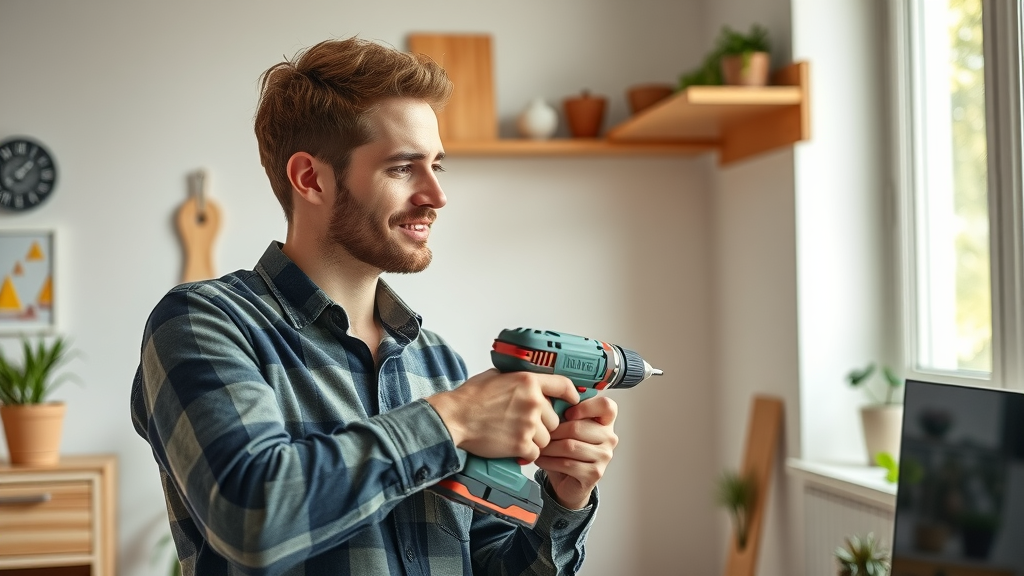
People Also Ask: Answers for DIY Project Success
What tools to start DIY?
To start in DIY, begin with a hammer, tape measure, screwdriver set, utility knife, and pliers. These basics cover most DIY project needs and provide the perfect foundation for upgrading to more advanced tools as your skills grow.
What are good starter tools?
Good starter tools include a well-rounded tool kit, power drill, level, adjustable wrench, and a basic driver set. These offer maximum flexibility for a variety of DIY projects, making tasks more efficient and boosting your confidence as a beginner DIYer.
What is the most versatile DIY tool?
The power drill is arguably the most versatile tool in a DIYer’s arsenal. With the ability to drill holes, drive screws, and even sand or polish with attachments, it’s the go-to choice for a wide range of home improvement, repair, and craft projects.
How to start getting into DIY?
Begin your DIY journey by picking up essential starter tools, tackling simple projects first, and learning new techniques through step-by-step tutorials, whether online or from experienced friends. Confidence and skills grow with each successful project!
Answers: People Also Ask
What tools to start DIY?
- Start with a hammer, tape measure, screwdriver set, utility knife, and pliers to cover most diy project basics.
What are good starter tools?
- Good starter tools include a versatile tool kit, power drill, level, adjustable wrench, and a basic driver set.
What is the most versatile DIY tool?
- A power drill stands out as the most versatile diy tool, ideal for drilling, fastening, and even sanding with attachments.
How to start getting into DIY?
- Begin by acquiring essential starter tools for diy projects, start with small projects, and watch step-by-step tutorials to build confidence.
Expert Tips: Getting the Most Out of Your Best Starter Tools for DIY Projects
- Maintain your DIY tools for longevity
- Upgrade your tool kit as projects become more advanced
- Resources and forums for beginner DIY advice
- Evaluating when to invest in new power tools
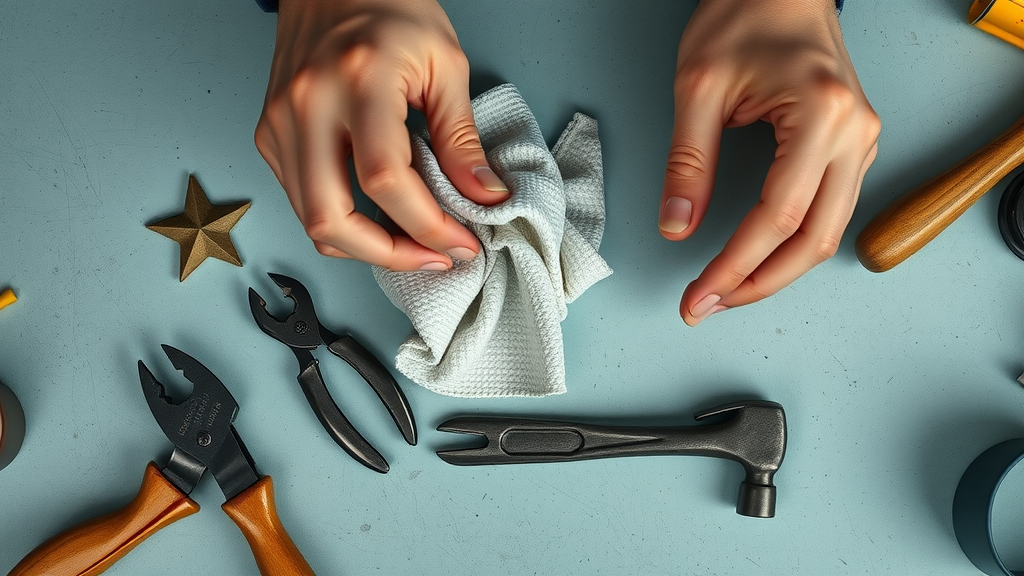
Frequently Asked Questions (FAQs) on Best Starter Tools for DIY Projects
- Can I buy a pre-assembled tool kit for beginner DIY projects? – Absolutely. Pre-assembled kits are convenient, cover all basics, and save time for new DIYers.
- How do I ensure my diy tools are safe to use? – Regularly inspect tools for wear, clean them after each use, and store them properly to prevent accidents or damage.
- Are power tools necessary for most diy projects? – Many starter projects can be completed with basic tools, but power tools greatly improve efficiency and allow for more advanced projects as your skills grow.
- What’s the best way to store starter tools for diy projects? – Use a sturdy toolbox, tool kit case, or wall-mounted pegboard for organization, safety, and easy access.
Key Takeaways: Best Starter Tools for DIY Projects
- Begin your DIY journey with a select list of must-have DIY tools
- Invest in a quality tool kit and power drill as you progress
- Prioritize safety at every stage of your DIY project
- Stay curious and keep learning with each new DIY challenge
Conclusion: Your Next Steps With the Best Starter Tools for DIY Projects
- Assembling your own starter tool kit sets the foundation for diy success
- Quality beginner diy tools provide versatility and upgrade potential
- Embrace your diy projects with confidence and the right knowledge
 Add Row
Add Row  Add
Add 




Write A Comment